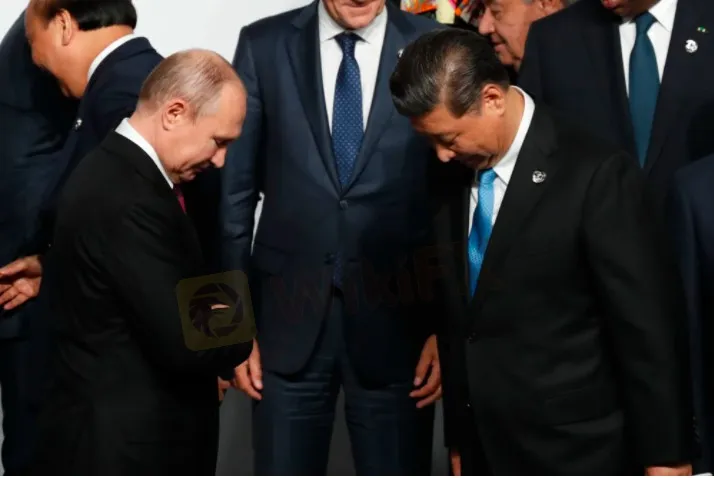简体中文
繁體中文
English
Pусский
日本語
ภาษาไทย
Tiếng Việt
Bahasa Indonesia
Español
हिन्दी
Filippiiniläinen
Français
Deutsch
Português
Türkçe
한국어
العربية
Chinese State Media Is Pushing Pro-Russian Misinformation Worldwide
Abstract:Ad buys show a pattern of targeting cheaper markets.
Beijing has spoken of its neutrality and desire for peace in the conflict between Russia and Ukraine—but Chinese state-affiliated media outlets have kept on spreading Kremlin propaganda, even as European Union countries and social media platforms have moved to ban Russian state media due to misinformation.
According to analysis conducted by CNN, almost half of the most shared posts on Weibo from 14 Chinese state media outlets are strongly pro-Russia. Research by Maria Repnikova and Wendy Zhou shows that social media opinion on Chinese sites leans the same way. But thats not enough for Beijing. Chinese state media is actively working—and paying—to spread pro-Russia misinformation on Western social media platforms like Twitter, Facebook, and TikTok.
The current line China is trying to push onto Western social media platforms is a well-developed lie about U.S. bioweapon experiments in Ukraine. This is a propaganda line well developed in Russian media—but Beijing isn‘t promoting it to help Moscow as much as it is to just smear the West. Since early 2020, China has promoted claims that COVID-19 really originated outside of China and created a fantasy story of U.S. military experimentation at Fort Detrick that created the virus. This claim, heavily normalized in China, is a convenient distraction from China’s own failings in allowing the virus to spread in Wuhan. As omicron challenges China‘s containment system, blaming the West is a useful distraction—but it’s also become a routine exercise for Chinese media.
One of the most notable outlets involved in foreign propaganda is CGTN, an English-language cable TV news service owned by Chinese state media China Central Television (CCTV), under the control of the Chinese Communist Partys Publicity Department. Although some recent reports have discussed Russian bombings, CGTN has generally backed Russian propaganda by calling the invasion “special military action” and directly publishing quotes from Sputnik and other Russian sites, such as “Putin says Russia has no ill intentions towards its neighbours.”

Disclaimer:
The views in this article only represent the author's personal views, and do not constitute investment advice on this platform. This platform does not guarantee the accuracy, completeness and timeliness of the information in the article, and will not be liable for any loss caused by the use of or reliance on the information in the article.
Read more

Check Yourself: Are You Always Rushing for Trades?!
With market fluctuations happening in real-time and profits hinging on split-second decisions, many traders develop an impulse to act quickly. But have you ever stopped to ask yourself: Am I rushing into trades? If you’re constantly clicking “Buy” or “Sell” in a flurry of excitement or anxiety, you may be falling into a dangerous trap that could cost you more than you realise.

Exposing Trading Academy Scams: How Aspiring Traders are at Risk
In the age of digital finance, the promise of financial freedom through trading has never been more alluring. Social media is flooded with advertisements for trading academies claiming to turn beginners into expert traders in weeks, offering ‘guaranteed’ profits and ‘exclusive’ strategies. However, behind the glossy marketing lies a sinister reality as many of these so-called academies are nothing more than elaborate scams designed to exploit unsuspecting traders.

Best Binary Options Indicators: Enhance Your Trading Strategy
Binary options trading involves predicting whether an asset's price will rise or fall within a specific timeframe. Unlike traditional investing, more specifically, binary options demand rapid decisions due to fixed expiry times (e.g., 60 seconds to 1 hour). For instance, speculating if EUR/USD will be above 1.0800 in the next five minutes. Success yields a fixed payout, while failure results in the loss of invested capital. Binary indicators distill complex market data—price action, volume, volatility—into actionable signals tailored for short-term trades. Indicators act as a compass, guiding traders to trends, reversals, and optimal entry points, thus enabling traders to detect market shifts for higher-probability decisions.

Olymp Trade Review 2025: Is It Safe to Trade With?
Founded in 2014, Olymp Trade has been operating for over a decade, expanding its services and user base considerably, now offering focused trading in fixed-time trades (previously known as binary options in some regions) and Forex. Specifically, Olymp Trade operates two trading modes: fixed-time trades and forex mode. Fixed-time trades refer to trades with predetermined expiration times, where traders predict market movement directions. Payouts typically range from 70-90% of the investment amount. Forex Mode is a more traditional forex trading approach with variable leverage (up to 1:500 for experienced traders). At the same time, it allows for more sophisticated trading strategies with customisable take-profit and stop-loss orders.
WikiFX Broker
Latest News
GCash Adds USDC to GCrypto for Secure Crypto Trading in Philippines
Kraken Acquires NinjaTrader for $1.5B to Lead US Futures Market
Vanishing Fortunes: RM1.9 Million Lost in a Crypto Scam
DFA Rescues Over 100 Filipinos from Myanmar Scam Hubs
What Project 2025 Means for Tariffs and Trade on April 2
FX vs Crypto Trading: Which Strategy is Best for You in 2025?
BOTBRO Scam revealed?
Trade Demo, Win Real Money! Join WikiFX’s Trading Competition Now!
AI-Driven Scams Are Targeting Your Finances—Stay Vigilant
SFC Hongkong Suspends Popular Finfluencer, Franky Wong from 19 March 2025 to 18 July 2026
Currency Calculator







